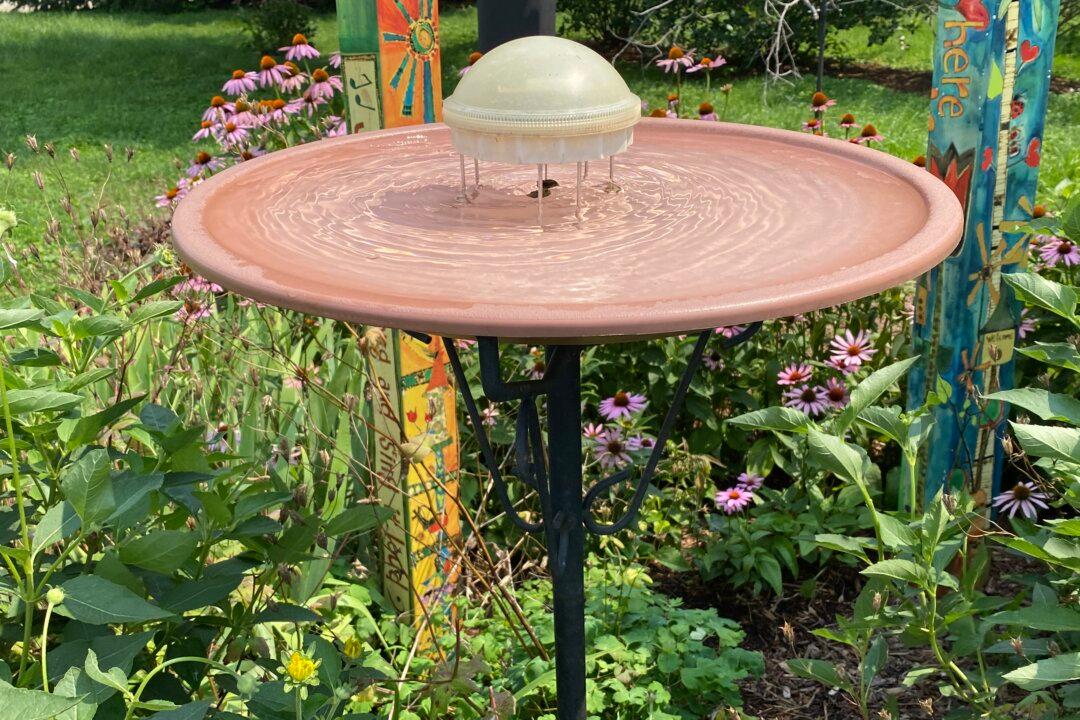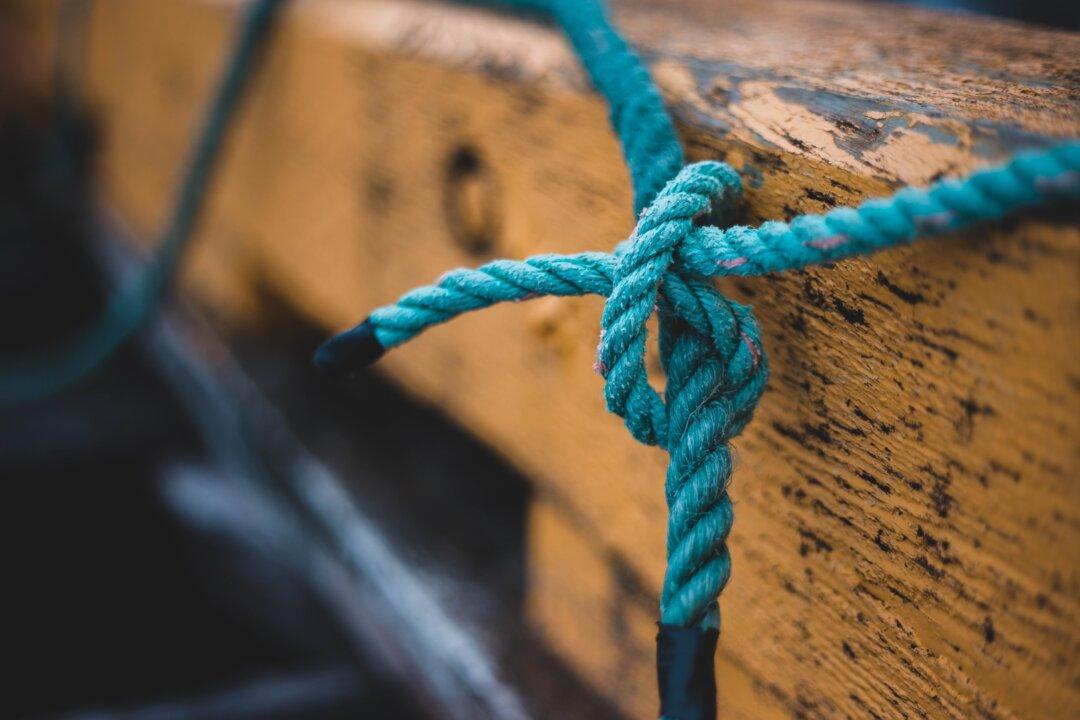A dome-shaped, UFO-look-alike object sends gentle ripples through the water in a birdbath located on the side yard of the nature shop Wild Birds Unlimited at busy MacArthur Boulevard in Springfield, Illinois.
The solar powered “water wiggler,” as the water feature in the middle of the birdbath is called, aims to agitate the water just enough to attract the attention of birds, who, hopefully, will stop by for a bath – and more.





